Online Marketplace Marketing

Online marketplaces are e-commerce platforms which connect sellers to buyers. They can be likened to virtual hypermarkets with multiple vendors offering a large array of goods and services. Chat with us today to discover how your business can leverage the online marketplace sphere!
Content
- Should Businesses Leverage Online Marketplaces?
- Will Businesses Benefit From Selling On Online Marketplaces?
- What Is Online Marketplace Marketing?
- Online Marketplace Tools That Businesses Can Employ For Marketing
- Paid And Organic Marketplace Marketing Methods
- Why Is Online Marketplace Marketing Necessary?
- Our Services
Content
- Should Businesses Leverage Online Marketplaces?
- Will Businesses Benefit From Selling On Online Marketplaces?
- What Is Online Marketplace Marketing?
- Online Marketplace Tools That Businesses Can Employ For Marketing
- Paid And Organic Marketplace Marketing Methods
- Why Is Online Marketplace Marketing Necessary?
- Our Services
SHOULD BUSINESSES LEVERAGE ONLINE MARKETPLACES?
Many businesses have entered the online-marketplace platforms (e.g., Lazada & Shopee) as these platforms attract substantial user footfall.
They have drawn in a wide range of businesses, from SMEs to big brand names. For some, these platforms are the only platform that they operate from.
Consumers are increasingly taking to online shopping in recent years (Graph 1). This trend is forecasted to continue in the coming years.
Consumers are familiar with online marketplace platforms. The top four most-visited e-commerce platforms in 2022 are trusted and well-established online marketplaces - Shopee, Lazada, Amazon and Qoo10 (Graph 2).

Four Popular Online Marketplace Platforms (Sg)
Beneficial for relevant businesses to establish their presence on these trusted and well-established online marketplaces.
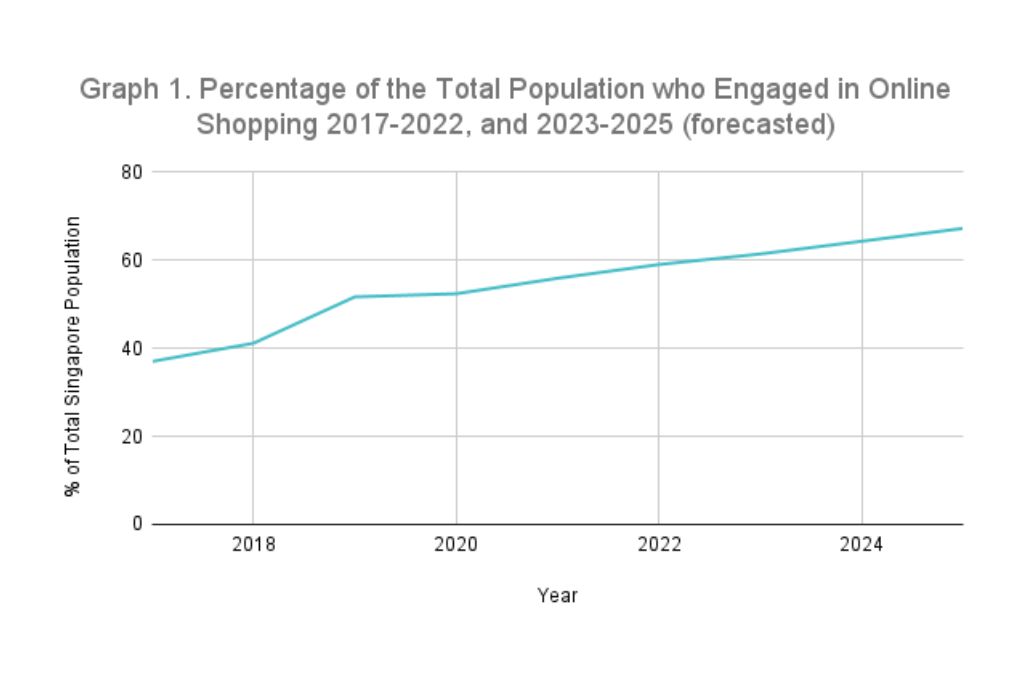
Graph 1. Percentage of the Total Population who Engaged in Online Shopping 2017-2022, and 2023-2025 (forecasted)
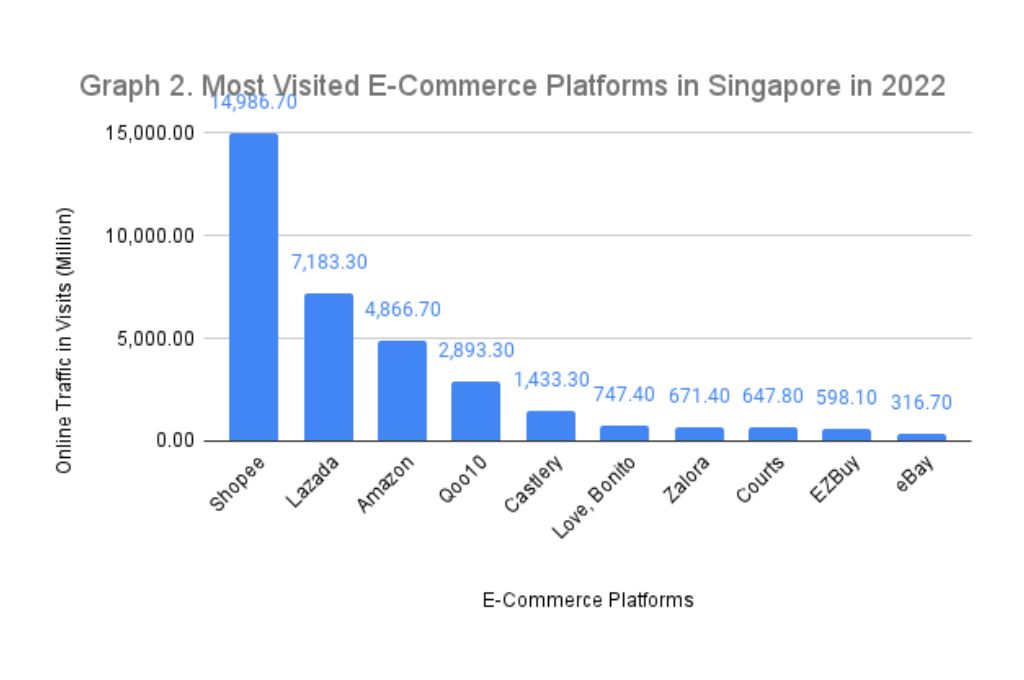
Graph 2. Most Visited E-Commerce Platforms in Singapore in 2022
WILL BUSINESSES BENEFIT FROM SELLING ON ONLINE MARKETPLACES?
Businesses may benefit from tapping on existing resources provided by online marketplaces such as:
Large existing customer base
Convenient payment and delivery integrations
Platform-specific promotions and campaigns
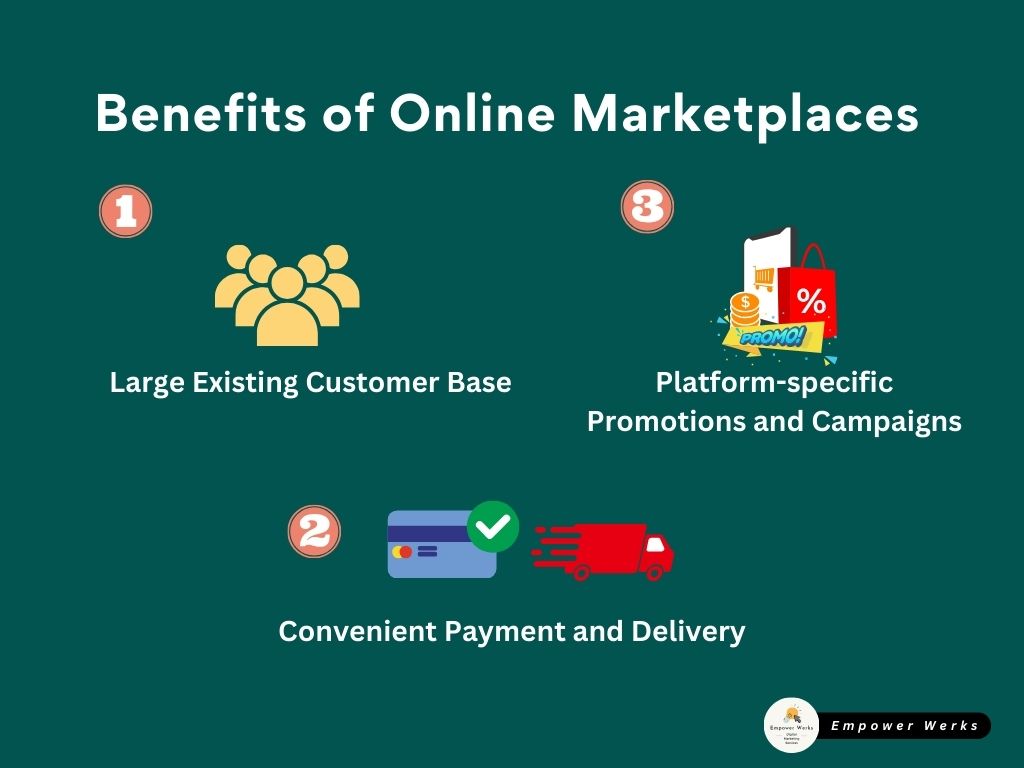
Why Market on Online Marketplaces?

Why Market on Online Marketplaces?
WILL BUSINESSES BENEFIT FROM SELLING ON ONLINE MARKETPLACES?
Businesses may benefit from tapping on existing resources provided by online marketplaces such as:
Large existing customer base
Convenient payment and delivery integrations
Platform-specific promotions and campaigns
“WHAT IS ONLINE MARKETPLACE MARKETING?”
Online marketplace marketing is essentially marketing activities performed on online marketplaces such as Lazada and Shopee to promote a business’s brand and products.
ONLINE MARKETPLACE TOOLS THAT BUSINESSES CAN EMPLOY FOR MARKETING
Online marketplaces provide marketing-friendly tools such as customisable landing pages, promotional vouchers, paid advertising, and data analytics.
Using a combination of paid and organic online marketplace marketing methods, businesses can:
Build brand awareness
Build brand trust
Run advertisements and promotions
Drive traffic to their marketplace pages and listings
Increase conversions
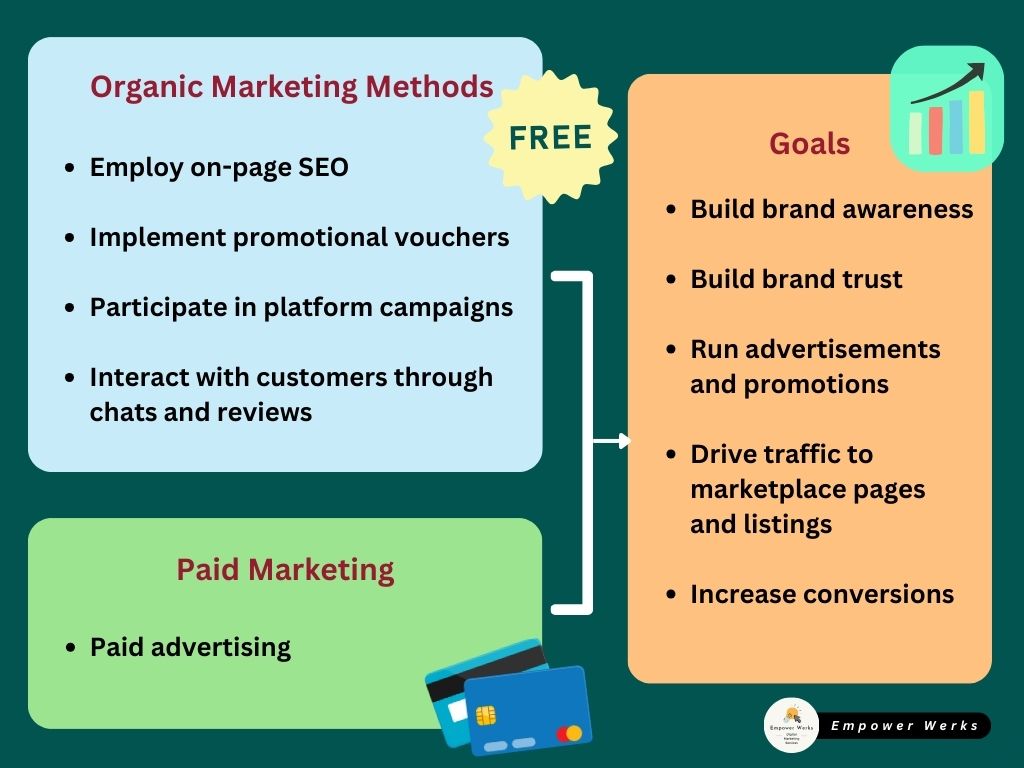
Achieve Goals With Online Platform Features
Paid and Organic Online Marketplace Marketing Methods
Organic online marketplace marketing methods use features of online marketplace platforms that only require membership and are free to use.
Examples of organic online marketing activities include:
- Employing on-page SEO (e.g., using high-quality creative design and copywriting, and keyword research)
- Implementing promotional voucher
- Participating in platform campaigns
- Interacting with customers through chat and reviews
Paid marketing involves paid advertising.
Businesses may also wish to employ off-platform promotions to drive traffic to their marketplace shops.

Achieve Goals With Online Platform Features
WHY IS ONLINE MARKETPLACE MARKETING NECESSARY?
Businesses selling products on online marketplace platforms face competition not only from other local sellers but also overseas sellers.
In 2022, Singapore consumers preferred to buy cross-border goods through online marketplaces (84%) as compared with brand websites (36%) or retailer websites (34%) (Borderless Commerce Report 2022, Paypal).
Thus, for relevant businesses, online marketplace marketing strategies are necessary and relevant for businesses to maintain their competitive edge.
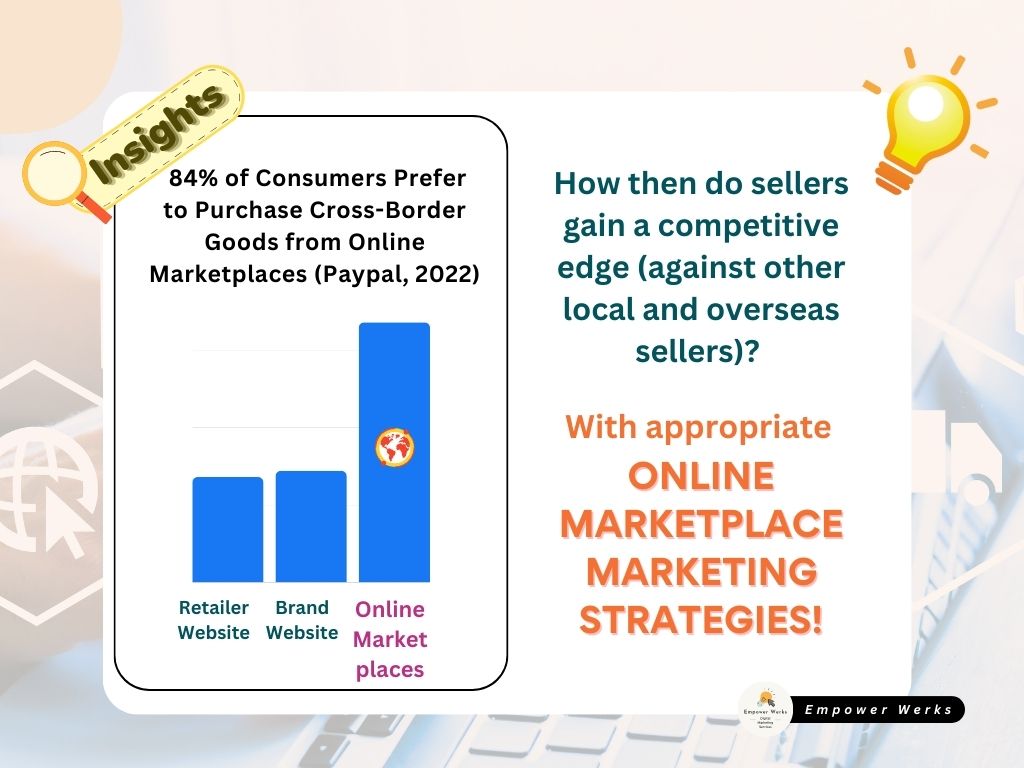
Why Is Online Marketplace Marketing Necessary?
OUR SERVICES
Listed below are some of our services.
We understand that every business has different needs and will tailor our services to meet clients’ requirements according to digital marketing best practices.
For more information, please do not hesitate to reach out to us.
Marketplace e-Store Set-Up
- Account Registration and Set-Up
- Design and Artwork: We will assist in creating engaging, informative, and responsive visual assets such as banners, infographics, and product listing images — in line with the brand image/direction.
- Writing: We offer copywriting services for product details and descriptions.
Marketplace e-Store Management
- Market Research: We offer marketing strategy suggestions through competitor research and customer analysis.
- SEO Optimisation: Keyword research, tagging with relevant buyer keywords, optimising for mobile representation, creating clear and attention-catching product titles and more.
- Promotion and Advertising: We will assist in designing promotional banners for landing pages, selection and registration for advertisements, and activation of promotional vouchers, discounts and bundles.
- Customer Engagement: Management of responses to customer reviews, ensuring to reflect a positive brand voice/image.
- Performance Tracking: Maximising the potential of online marketplace marketing strategies and keeping accountable reports through monitoring, analysing, and applying knowledge from:
- Metrics provided by respective online market platforms
- Relevant tracking implementations

